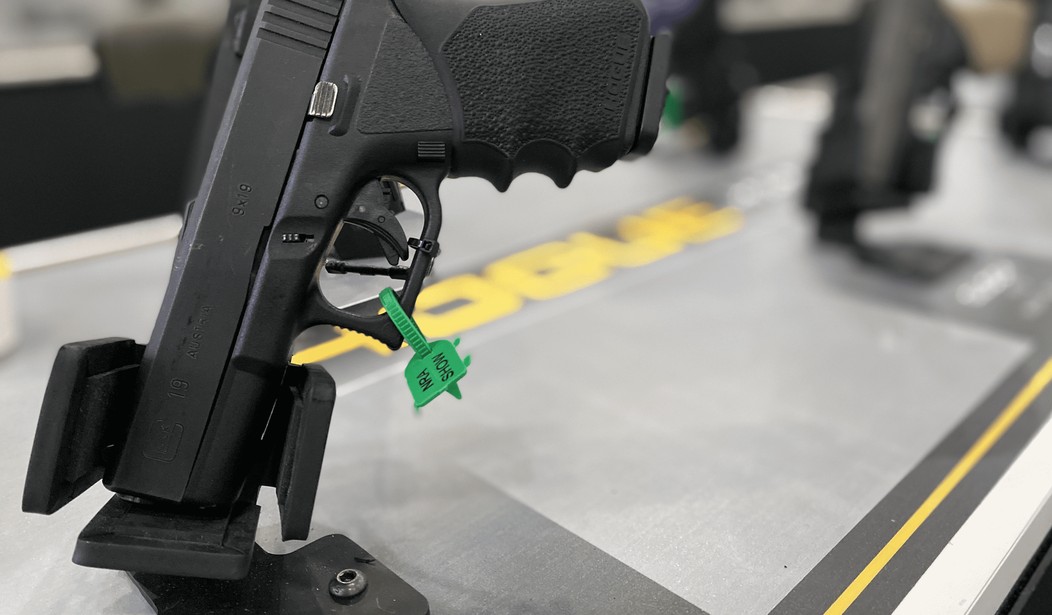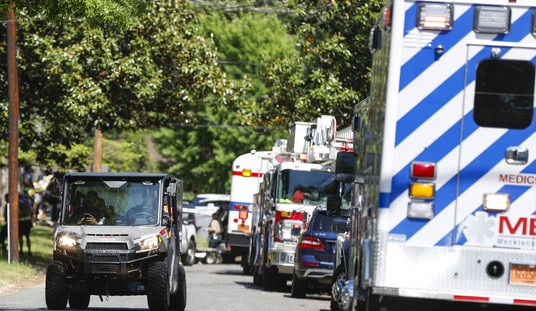That’s the premise of a New York Times story, though the paper is careful to offer a caveat to its readers that the GOP support for new gun control measures is “fragile.” I wouldn’t even that far, given the fact that less than half of the GOP caucus in the Senate (and far less than half in the House) is going to end up voting for the agreement.
It’s hard to argue that the expected passage of the deal represents a major shift on the part of Republicans. If that were the case, not only would you expect more than two senators up for re-election this year to show their support for the package (as of right now the only Republican senators facing voters this fall who voted in favor of opening debate on the bill are Todd Young of Indiana and Lisa Murkowski of Alaska), but the deal itself would look a lot more like Democrats wanted it to; raising the age to purchase a firearm of any kind from 18 to 21, imposing a federal “red flag” law, banning magazines and more.
The Times points out that Republicans like Sen. Joni Ernst of Iowa say they’ve been overwhelmed by the number of calls and contacts to their offices urging them to “do something”, with Ernst telling the paper that calls were running about 6-1 in favor of the deal.
“I’ve talked to even Republican lawmakers in the state of Iowa, and they’re like, ‘We’re hearing from our constituents too, about this issue,’” Ms. Ernst, the No. 5 Republican, said, adding, “So I think people recognize something needs to be done.”
But the list of defectors also illustrated the fragility of the coalition that is willing to move forward with even a modest compromise on guns and the political peril a majority of Republicans still see in backing any new laws on the issue. It suggests that, far from a sweeping shift that could usher in a new era of consensus on addressing gun violence in America, the bill represents a high-water mark for a Congress that could soon be in the hands of a Republican Party that is still staunchly opposed to doing so.
It’s not that most Republicans don’t care about addressing “gun violence,” it’s that a) they’re more focused on violent crime in general and b) they don’t believe restricting the right to keep and bear arms is the right (or even constitutional) approach to stopping violent criminals. But the Times is right when it suggests that the Senate deal is likely to be the last bit of legislation that has any gun control measures in it to pass out of Congress for the forseeable future. If Republicans take back the House as expected this fall, Congressional gun control efforts are going nowhere for the next few years, which is one of the reasons why Democrats are so desperate to get something they can call a victory now.
I’ve said all along that the Senate negotiations are based more on the politics of the moment than actual policy, and they certainly don’t represent a change of heart on the part of the Republican base. I mean, the entire pitch from Republicans like John Cornyn is that the Senate bill doesn’t actually impose any new gun controls on law-abiding citizens at all, not that Republicans need to get with the program and start supporting “reasonable” measures like banning commonly-owned firearms and magazines. Gun control is still a non-starter for most Republicans, and at least one GOP senator who voted to start debate on the bill says he’s undecided about whether or not he’ll ultimately vote for its passage because of his Second Amendment concerns.
Mr. Young suggested he was still examining the details of the legislation, including pressing for details to determine whether there were valid concerns about infringement of Second Amendment Rights.
“We didn’t have a whole lot of time to review the text and solicit, from various stakeholders and experts, thoughts on it,” Mr. Young said on Wednesday. “I remain open to supporting it. I also remain open to not supporting it.”
It’s wishful thinking on the part of the Times that the Senate gun deal represents some sort of major realignment on the issue of gun control. Democrats were willing to bend on most of their demands in the interest of telling their base that they passed “the most significant piece of gun reform legislation in 30 years”, while Republican leadership in the Senate (but not the House) are willing to go along with a watered-down bill so they can tell voters they “took action” to protect the public from targeted attacks by cowardly mass murderers at a time when concern about violent crime is becoming one of the top issues among those most likely to show up at the polls in November. Neither side is actually shifting their positions, they’re just jockeying for political advantage ahead of the midterms.









Join the conversation as a VIP Member